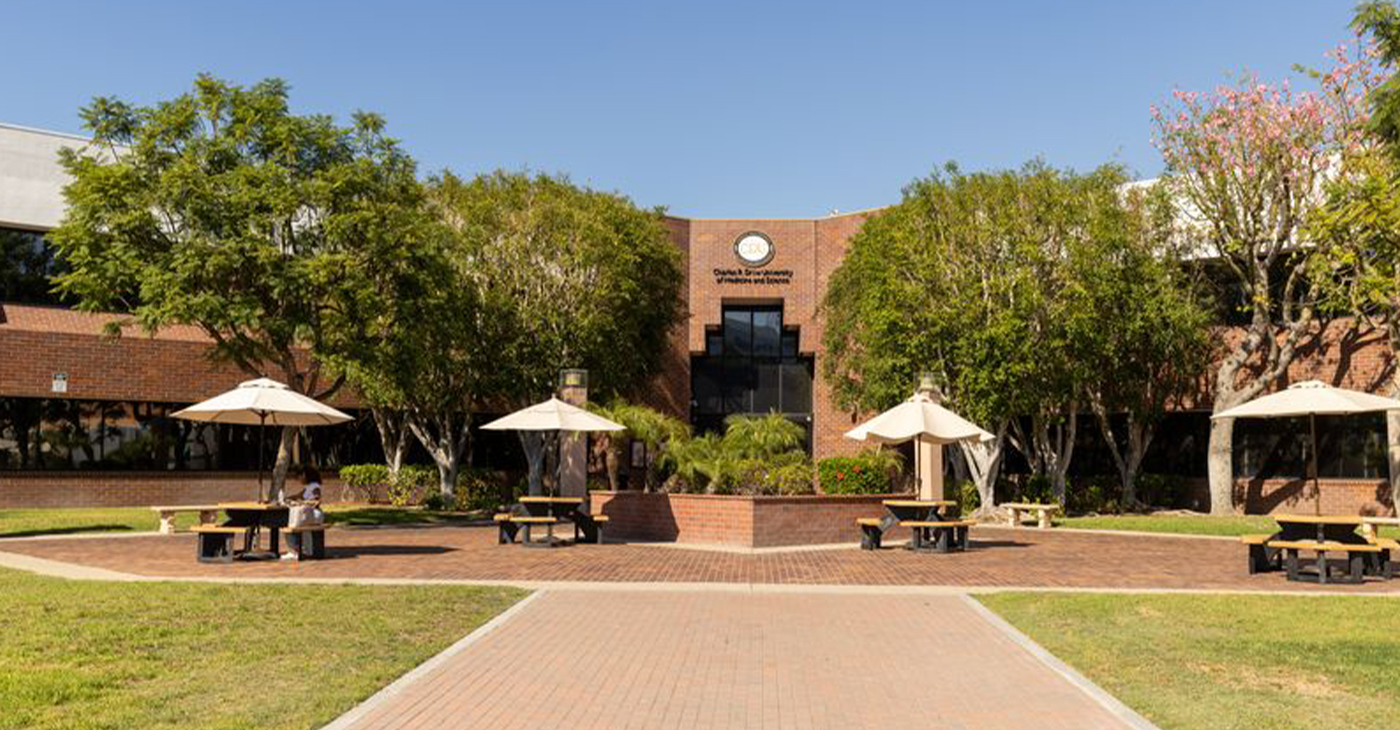Education
Local High School Students Examine Injustice in the U.S.
NEW ORLEANS DATA NEWS WEEKLY — High school scholars were given an opportunity to speak out against social justice and inequity at the Criminal Justice Symposium of Scholars.
By Kotey Thomas
High school scholars were given an opportunity to speak out against social justice and inequity at the Criminal Justice Symposium of Scholars organized by the Bard Early College in New Orleans program on January 26, 2019, at Dillard University’s Professional School Building. The symposium also brought experts who work on social justice issues from various disciplines like environmental, criminal, and arts-based, to educate young people about these issues.
“I wanted to be able to organize something like this to give them the opportunity to not only engage with that bridge between an academic self and activist self, but also to reassert the significance of their own voices,” said Imani Sheppard, an assistant professor of medical humanities at Bard College in New York, and the coordinator of the event.
Sheppard said that seeing young people engage issues about social injustice, early on, inspires hope for a more equitable future. “I would hope that it reassures listeners that all is not lost, and that there is a potential for positive upward movement within the community starting with these students who often don’t have a voice,” she said.
The event’s speakers hoped that such forums, outside the classroom, can help future leaders see how social and political structures lead to forms of oppression.
“Policies that pass in our neighborhood are based upon those who govern,” said Asali DeVan Ecclesiastes, the keynote speaker, who is the director of strategic neighborhood development for the Claiborne Corridor Cultural Innovation District. She illustrated that those in power control how neighborhoods are developed around socio-economic status; putting those in lower class neighborhoods at a societal disadvantage.
“If you live in Gert town…Tulane, Gretna, Seventh Ward and Ninth Ward areas, chances are your neighborhoods have been decimated by the policy decisions of our leaders,” Ecclesiastes said. “You need lots more in order to have better outcomes in life because the cards have been stacked against you,” she added. “And I challenge you all to help us deal new hands.”
For many students coming from these neighborhoods, especially African-Americans ,the school-to-prison pipeline is institutionalized through urban school culture, said Tuere Burns, the executive director of BarNone. Her non-profit organization was founded to provide people affected by incarceration with opportunities for entrepreneurship and success. “If you have not been to any of the local schools here, go visit. And you’ll see. You’ll see tape on the floor, you’ll see the way the children are handled and not respected,” Burns said.
After working for 25 years in social justice campaigns around the prison industrial complex, Burns explained that the system profits off of inequality. “[It] makes a ton of money off of our people, poor people, and especially our boys,” Burns said.
Social justice advocates from the National Association of Multicultural Education examined how different groups in the community, both academic and faith-based, could intervene in forms of oppression, particularly when it comes to policing. Students said the experience opened their eyes to become more aware of how subtle injustices can be.
“You are not to be so blind with patriotism that you cannot face reality,” said Ron Triggs of International High School of New Orleans who was the first student of the Bard Early College in New Orleans program to present his research.
“Due to power dynamics, we refuse to challenge the systems,” Triggs said.
In identifying forms of systemic oppression, the students outlined in their presentations that this was the first step to breaking decades of inequality within the African American community.
“Getting out of a cycle of destruction often takes a lot of resources, and is even harder when your own education system is trying to destroy you,” Triggs added.
The organizers said they hope such critical learning, outside the classroom, would prepare high school students for facing the challenges of today, long after they graduate. “Deprogramming. I feel that is what we are working towards,” Sheppard said. “Deprogramming students from what they feel is normal and what they have accepted as normal,” she said.
This article originally appeared in the New Orleans Data News Weekly.
Activism
Desmond Gumbs — Visionary Founder, Mentor, and Builder of Opportunity
Gumbs’ coaching and leadership journey spans from Bishop O’Dowd High School, Oakland High School, Stellar Prep High School. Over the decades, hundreds of his students have gone on to college, earning academic and athletic scholarships and developing life skills that extend well beyond sports.

Special to the Post
For more than 25 years, Desmond Gumbs has been a cornerstone of Bay Area education and athletics — not simply as a coach, but as a mentor, founder, and architect of opportunity. While recent media narratives have focused narrowly on challenges, they fail to capture the far more important truth: Gumbs’ life’s work has been dedicated to building pathways to college, character, and long-term success for hundreds of young people.
A Career Defined by Impact
Gumbs’ coaching and leadership journey spans from Bishop O’Dowd High School, Oakland High School, Stellar Prep High School. Over the decades, hundreds of his students have gone on to college, earning academic and athletic scholarships and developing life skills that extend well beyond sports.
One of his most enduring contributions is his role as founder of Stellar Prep High School, a non-traditional, mission-driven institution created to serve students who needed additional structure, belief, and opportunity. Through Stellar Prep numerous students have advanced to college — many with scholarships — demonstrating Gumbs’ deep commitment to education as the foundation for athletic and personal success.

NCAA football history was made this year when Head Coach from
Mississippi Valley State, Terrell Buckley and Head Coach Desmond
Gumbs both had starting kickers that were women. This picture was
taken after the game.
A Personal Testament to the Mission: Addison Gumbs
Perhaps no example better reflects Desmond Gumbs’ philosophy than the journey of his son, Addison Gumbs. Addison became an Army All-American, one of the highest honors in high school football — and notably, the last Army All-Americans produced by the Bay Area, alongside Najee Harris.
Both young men went on to compete at the highest levels of college football — Addison Gumbs at the University of Oklahoma, and Najee Harris at the University of Alabama — representing the Bay Area on a national level.
Building Lincoln University Athletics From the Ground Up
In 2021, Gumbs accepted one of the most difficult challenges in college athletics: launching an entire athletics department at Lincoln University in Oakland from scratch. With no established infrastructure, limited facilities, and eventually the loss of key financial aid resources, he nonetheless built opportunities where none existed.
Under his leadership, Lincoln University introduced:
- Football
- Men’s and Women’s Basketball
- Men’s and Women’s Soccer
Operating as an independent program with no capital and no conference safety net, Gumbs was forced to innovate — finding ways to sustain teams, schedule competition, and keep student-athletes enrolled and progressing toward degrees. The work was never about comfort; it was about access.
Voices That Reflect His Impact
Desmond Gumbs’ philosophy has been consistently reflected in his own published words:
- “if you have an idea, you’re 75% there the remaining 25% is actually doing it.”
- “This generation doesn’t respect the title — they respect the person.”
- “Greatness is a habit, not a moment.”
Former players and community members have echoed similar sentiments in public commentary, crediting Gumbs with teaching them leadership, accountability, confidence, and belief in themselves — lessons that outlast any single season.
Context Matters More Than Headlines
Recent articles critical of Lincoln University athletics focus on logistical and financial hardships while ignoring the reality of building a new program with limited resources in one of the most expensive regions in the country. Such narratives are ultimately harmful and incomplete, failing to recognize the courage it takes to create opportunity instead of walking away when conditions are difficult.
The real story is not about early struggles — it is about vision, resilience, and service.
A Legacy That Endures
From founding Stellar PREP High School, to sending hundreds of students to college, to producing elite athletes like Addison Gumbs, to launching Lincoln University athletics, Desmond Gumbs’ legacy is one of belief in young people and relentless commitment to opportunity.
His work cannot be reduced to headlines or records. It lives on in degrees earned, scholarships secured, leaders developed, and futures changed — across the Bay Area and beyond.
Activism
Oakland School Board Grapples with Potential $100 Million Shortfall Next Year
The school board approved Superintendent Denise Saddler’s plan for major cuts to schools and the district office, but they are still trying to avoid outside pressure to close flatland schools.

By Post Staff
The Oakland Board of Education is continuing to grapple with a massive $100 million shortfall next year, which represents about 20% of the district’s general fund budget.
The school board approved Superintendent Denise Saddler’s plan for major cuts to schools and the district office, but they are still trying to avoid outside pressure to close flatland schools.
Without cuts, OUSD is under threat of being taken over by the state. The district only emerged from state receivership in July after 22 years.
“We want to make sure the cuts are away from the kids,” said Kampala Taiz-Rancifer, president of the Oakland Education Association, the teachers’ union. “There are too many things that are important and critical to instruction, to protecting our most vulnerable kids, to safety.”
The school district has been considering different scenarios for budget cuts proposed by the superintendent, including athletics, libraries, clubs, teacher programs, and school security.
The plan approved at Wednesday’s board meeting, which is not yet finalized, is estimated to save around $103 million.
Staff is now looking at decreasing central office staff and cutting extra-curricular budgets, such as for sports and library services. It will also review contracts for outside consultants, limiting classroom supplies and examine the possibility of school closures, which is a popular proposal among state and county officials and privatizers though after decades of Oakland school closures, has been shown to save little if any money.
Activism
How Charles R. Drew University Navigated More Than $20 Million in Fed Cuts – Still Prioritizing Students and Community Health
Named after the pioneering physician Dr. Charles R. Drew, famous for his work in blood preservation, CDU’s mission is to cultivate “diverse health professional leaders dedicated to social justice and health equity for underserved populations through education, research, clinical service, and, above all, community engagement.”

Charlene Muhammad | California Black Media

Earlier this year, when the federal government slashed more than $20 million in grants to Charles R. Drew University of Medicine and Science (CDU), the leadership of California’s only historically Black medical school scrambled to stabilize its finances — while protecting its staff and students.
Named after the pioneering physician Dr. Charles R. Drew, famous for his work in blood preservation, CDU’s mission is to cultivate “diverse health professional leaders dedicated to social justice and health equity for underserved populations through education, research, clinical service, and, above all, community engagement.”
The school is widely recognized as a vital pipeline for Black doctors and other health professionals throughout California.

Dr. David Carlisle (center), President of Charles R. Drew University of Medicine and Science (CDU), with two of the university’s students. Photo Courtesy of Charles R. Drew University of Medicine and Science.
Dr. Jose Torres-Ruiz, CDU’s Executive Vice President for Academic Affairs and Provost, said the university—designated as a Historically Black Graduate Institution (HBGI)—was notified in early March 2025 that most of its major grants, including the Research Centers in Minority Institutions (RCMI) award, known at CDU as the “Accelerating Excellence in Translational Science” (AXIS Grant), would be terminated. Initially renewed, the grant was later revoked because its language did not align with the current federal administration’s priorities.
The AXIS Grant provides $4.5 million per year for five years through the National Institutes of Health’s National Institute on Minority Health and Health Disparities. CDU quickly reallocated other funds to protect its scientists, staff, and technicians, though some personnel losses were unavoidable.
“We didn’t want to fire them because these people have expertise that takes years to gain,” Torres-Ruiz said.
The grant is crucial, he added, funding research in cancer, diabetes, and metabolic diseases that affect the Willowbrook community in South Los Angeles, training the next generation of scientists, and supporting community outreach.
Programs at the school, including its youth and teen mentoring programs reach beyond the walls of the university, impacting the lives and quality of health care of people in the surrounding community, one of the most underserved areas in Los Angeles County.
Confronted with the harsh reality of funding cuts, the university’s leadership made an early, strategic choice to honor its foundational commitment and prioritize its students. Dr. Deborah Prothrow-Stith, dean of CDU’s College of Medicine, highlighted the school’s deliberate focus on admitting students from economically disadvantaged backgrounds — many of whom are Pell Grant recipients and graduates of public high schools.
“We are staying true to our mission, finding creative ways to prioritize what’s most important,” she said. “I’m optimistic because of our students—they are dedicated and committed to service.”
In addition, the $2 million-per-year John Lewis NIMHD Research Endowment Program, intended to strengthen CDU’s research infrastructure, was terminated with three years remaining after a February 2025 freeze on nearly all federal grants for public health, education, and infrastructure projects.
Following an appeal, CDU learned in June that the RCMI grant had been fully reinstated, along with all but eight smaller grants. The university’s next priority is restoring the John Lewis Endowment.
“We are working with NIH staff to adjust the language. Certain words like ‘diversity’ and ‘equity,’ which are core values of our institution, are now under scrutiny,” Torres-Ruiz explained.
CDU has also expanded funding sources by targeting foundations and private donors. “This may happen again. We cannot rely solely on federal agencies,” Torres-Ruiz said, emphasizing the importance of building relationships with politicians and private partners.
Prothrow Stith echoed Ruiz’s perspective on cultivating multiple funding sources. “Building bridges with private foundations helps, but it doesn’t erase the disruption,” she said.
Many students rely on federal loans, CDU leaders say. Those loans are now capped at $150,000. So, most medical students graduate with $300,000–$350,000 in debt when accounting for tuition and living expenses.
To lower the burden on students, CDU is exploring options to make education more affordable, including overlapping school years to reduce annual costs.
Students like Isaiah Hoffman and Bailey Moore epitomize CDU’s values.
Hoffman, an aspiring orthopedic surgeon from Inglewood, credits Drew for inspiring his career choice. Out of 12 medical school acceptances, he chose CDU to give back to his community and continue Drew’s legacy. Hoffman also founded H.O.M.I.E.S. Inc., a nonprofit pairing Black K–12 students with mentors to support academic and personal growth.
Moore, 23, from Southeast Washington, D.C., pursued CDU to address maternal health disparities she observed in her own community – an underserved area of the nation’s capital city. “CDU pours into you. It emphasizes service, and I hope for a world without health disparities,” she said. “Drew may be small, but Drew is mighty. It was created out of necessity to save lives and empower communities.”
CDU President and CEO Dr. David Carlisle acknowledged during the Aug. 28 “State of the University” that the institution faces ongoing challenges. Political threats and grant disruptions contributed to a sizable unrestricted budget deficit, despite achievements over the past year.
Successful appeals and alternative sources of funding, led by Vice Provost Dr. Ali Andallibi, have now restored all the monies previously lost in research funding, he said.
Carlisle expressed gratitude to L.A. Care Health Plan and Sutter Health for providing multimillion-dollar scholarships and highlighted that CDU would welcome approximately 1,050 incoming students—near its highest enrollment ever. “I’m deeply grateful for the resolve, diligence, and unwavering commitment of everyone here, even when the path is not easy,” he said.
At the gathering, Carlisle referred to the sounds of ambulances passing by with blaring sirens as- the “music of healthcare,” while students and the school’s leadership attending expressed resilience in their speeches and conversations. The activities of the day captured the institution’s focus on education, service and advancing health care across disadvantaged communities in California – and beyond.
Video Report: How Charles Drew Stayed Strong Amid Federal Funding Cuts
-

 Bay Area4 weeks ago
Bay Area4 weeks agoPost Salon to Discuss Proposal to Bring Costco to Oakland Community meeting to be held at City Hall, Thursday, Dec. 18
-

 Activism4 weeks ago
Activism4 weeks agoMayor Lee, City Leaders Announce $334 Million Bond Sale for Affordable Housing, Roads, Park Renovations, Libraries and Senior Centers
-

 Activism4 weeks ago
Activism4 weeks agoOakland Post: Week of December 10 – 16, 2025
-

 Activism4 weeks ago
Activism4 weeks agoOakland School Board Grapples with Potential $100 Million Shortfall Next Year
-

 Activism4 weeks ago
Activism4 weeks ago2025 in Review: Seven Questions for Black Women’s Think Tank Founder Kellie Todd Griffin
-

 Arts and Culture4 weeks ago
Arts and Culture4 weeks agoFayeth Gardens Holds 3rd Annual Kwanzaa Celebration at Hayward City Hall on Dec. 28
-

 Advice4 weeks ago
Advice4 weeks agoCOMMENTARY: If You Don’t Want Your ‘Black Card’ Revoked, Watch What You Bring to Holiday Dinners
-

 Activism4 weeks ago
Activism4 weeks agoAnn Lowe: The Quiet Genius of American Couture























































